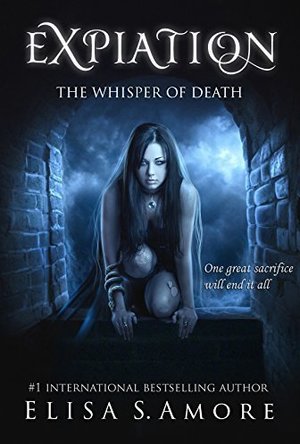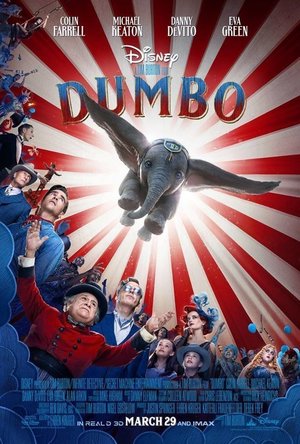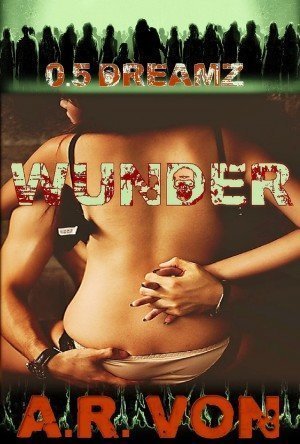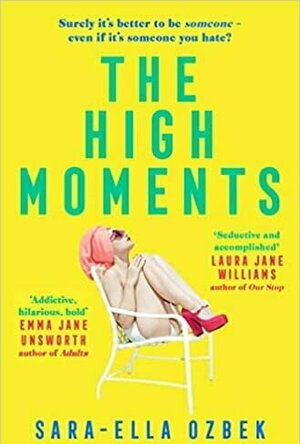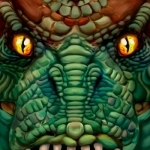
Ultimate Dinosaur Simulator
Games and Entertainment
App
Discover a long lost prehistoric world and rule over it as an all mighty Dinosaur! Travel back to a...
KittyMiku (138 KP) rated Expiation - The Whisper of Death in Books
May 23, 2019
I would first like to say seeing the Witch's align with their enemies to help protect Gemma was amazing. It left a lot of suspense in the air. I had waited for them to battle constantly but the fact they worked together to protect Gemma was truly amazing and in some moments quite amusing. As we saw in Brokenhearted, Devina had some strong feelings toward Evan and she kept making it clear as she helped protect Gemma. She did everything to cause Gemma and Evan to gain doubt in their relationship and everything else. The Witches even went to school and caused some trouble while protect Gemma. I have to say those antics around Gemma's mortal friends were my favorite. It was fun and quite amusing. The Witches over all were amusing to see do things outside of their home world, Hell.
But it wasn't just the unlikely alliance but the touching moments with everyone involved. To see the baby be born and to witness how happy they were to receive the child was truly touching. I was very upset that she had to become a witch and in the worst way possible. She was killed before Evan could put his plan into action and to see him suffer and become willing to allow Sophia's poison causing everything she knew and love to be lost to her forever. I hated seeing that. I was heart broken for Evan and their baby. Gemma took her place in Hell and proceeded to be a fairly ruthless Witch. She enjoyed the tempting and harvesting of Souls. I found myself holding my breath, hoping it wasn't true and that it was just an act. To find out that her past was erased from her kept me holding on to hope that Evan would free her.
I quite enjoyed learning more about how the Witches worked and learning about Sophia. Though previous books gave us some insight to how Sophia is and about her past, it isn't until this final extension that you learn how truly dark Sophia is and how completely selfish she is. I mean, you can expect that from the devil and with her being the devil, I don't know why I would have imagined her being sweet or even someone I could love. I was not disappointed in how truly evil she was. Though, some of her actions still surprised me. Especially where Gemma and Evan were concerned. However, her getting what she wants didn't surprise me much. But how she went along with obtaining what she wanted was truly mystifying. I loved how Amore detailed and described her and how Gemma and Evan felt towards her. It kept the story moving forwarded and full of suspense.
However, it was the ending seeing Gemma, Evan and their son reunited, even though is was in Heaven. I found myself crying for the last forty pages or so. I was just truly amazed with the story and even though it left you in awestruck and happy, you can't help but wish things had been different. To have the three of them find another way to be together. I have to say overall this was just a truly amazing experience. I would rate this book five stars out of five stars. I would rate the series the same way. I was able to experience all kinds of emotions. I found this book to be exhilarating and truly touching. I did think this book was the most depressing of them all, but watching Evan struggle through so much could have that affect on anyone.
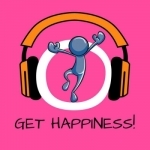
Get Happiness! Glücklich sein und Lebensfreude steigern mit Hypnose
Health & Fitness and Lifestyle
App
• Multiply and intensify moments of happiness and joie de vivre • Make room for more happiness...

Ultimate Bird Simulator
Games and Education
App
Soar into a brand new adventure as a majestic Eagle, swift Falcon, or a colorful Parrot! For the...
Emma @ The Movies (1786 KP) rated Dumbo (2019) in Movies
Jun 22, 2019 (Updated Sep 25, 2019)
I'm going to start with the moaning, but bear with me because it'll get better, I promise.
Let's address the elephant in the room, no not Dumbo, but the fact that they made something live action when it's almost entirely talking animals. (And yes, I'm already concerned for Lion King.) To actually get some human characters in there they've turned it on its head and made the story about the circus and its family. I don't have a problem with them doing this but everything I saw in the run-up to the film made me believe that it was a remake and not an adaptation. Possibly I just got caught up in all the hype of the other remakes Disney are producing. but it did colour my impression.
It's evident that Disney have tried to account for the fact that people won't be getting what they loved so much from the original, everywhere there are nods to the original. All of this is sadly far from that nostalgic fun, instead it felt like a bit of a slap in the face. "Hey look!! Remember this bit?!!" There's a quick nod to the storks, Dumbo getting drunk, and possibly the creepiest of them all, that happy-go-lucky train... you really should have left that one alone.
We're also severely lacking in those wonderful songs. I had heard the Arcade Fire version of Baby Mine in a trailer and it gave me goosebumps, but while it's a lovely scene in the film the song itself doesn't hold nearly enough weight. Disney to me is as much about the music as it is about the story and in this instance they've dropped the ball.
With Tim Burton at the helm it was going to be bleak... but geez! Mum's dead, Dad's missing an arm from war... and that mad elephant scene? "I want to go bigger than spanking an animated child." "I don't think we can have a scene where we spank a child in this day and age." "No, you're right, first thing we're going to need is a coroner." There were a lot of things in this that cut a very fine line, and I think that it's crossed over into a film that isn't really for kids anymore.
Despite these quibbles they've managed to do something magical with Dumbo. All of that magic from the animated version is still there in this little fella. I don't know how you get that much emotion out of something that isn't there, it was wonderful. Dumbo's reactions to feathers throughout, that eyes wide excitement, and when he sees Colette "flying" up to him... honestly, I don't know how to describe it. Hands down my favourite bit has to be the pink elephants bit, Dumbo watching intently and his head bobbing along was so pure.
I still don't know how I feel about the acting in Dumbo, beyond our little pachyderm I was underwhelmed by the whole thing. I wasn't particularly fond of the child characters. They seemed to decide that Milly should be a role model to other little girls, "you can be a scientist", but I don't know that making a role model out of someone who isn't exactly likeable is the way to go with this. They've also given Milly and her brother, Joe, the appointment of elephant trainers, and that frustrated me no end too, but for completely over thought reasons.
Danny Devito was a treat, his character is obviously intended to be dislikeable but is allowed to get some redemption in the end, which was nice to see. His scenes with the monkey were particularly fun.
This review has taken me so long to write, I think that's mainly because I just don't know about these human characters. Holt Farrier (Colin Farrell), V.A. Vandervere (Michae Keaton) and Colette Marchant (Eva Green) all just don't do anything for me... they seem very much like padding for a film that probably shouldn't have been made.
I don't want to run into any major spoilers, but that ending... it needs mentioning... it's ridiculous and clichéd. There was a perfectly good ending point they could have taken but sadly someone made the choice that the "happy ever after" ending needed to be spelt out for everyone.
I am torn about this film. You couldn't have remade the original exactly as it was, mild racism and a drunk minor just aren't going to cut it in a kids film. Potentially there is a new version in there somewhere, but I'm not sure that this dark human heavy one was the way to go.
What you should do
It's the Easter holidays, those kids need to be entertained somehow, Dumbo would not be the worst choice you could make.
Movie thing you wish you could take home
I don't think I have room for a baby elephant, so if someone could just cut all the footage of him together and give me a DVD containing all those good feelings that would be great.

Trovit Homes
Lifestyle and Productivity
App
Trovit Homes finds houses and apartments for rent and for sale on thousands of different websites...
Kara Skinner (332 KP) rated Dreamz in Books
Jun 12, 2019
Word Count: 12,470
Average Goodreads Rating: 4.54/5 stars
My rating: 3/5 stars
To be honest, I automatically started to dislike this book because “Dreams” is spelled with a Z. And while it was okay, it was not as good as it could have been.
Wunder has been dreaming about a man for as long as she can remember, always the same man. The dreams leave her aroused to no end at night. Unfortunately, this man doesn’t exist in her life, at least not yet. But her love life is nonexistent and thanks to her being half zombie, that’s not going to change any time soon.
Little does she know that her dream man exists and his name is Pete. Not only does he exist, but he’s been dreaming about her as well. Pete is also half zombie and lives in the next town over with his uncle. When he moves to Wunder’s town to recover from a huge zombie attack, will they finally get to meet in real life?
You can get this book for free on Smashwords.
I have such mixed feelings about this book. On one hand, it’s a cool story with some damn good world-building. The explanation behind a half zombie, half human is actually logical, or as logical as anything to do with zombies is. This also sets up a lot of potential plotlines for the other books in the series, all of them sounding interesting. And the Resilient Infected Police, or RIP, have a fantastic name.
Also, I can always appreciate a bad-ass girl who knows how to kick some ass, zombie or otherwise.
But learn to fricking edit.
Aside from the grammatical and punctuational atrocities that made my eyes widen in horror while I was reading this, there are so many strange things in this story that aren’t even rookie mistakes. This story is as loose as your post Taco Bell shit.
Never mind the crazy summaries and excessive telling instead of showing. I’ve seen that so many times by now, I’m almost immune to that. What I haven’t seen is a fucking tree fetish.
Yes, ladies and gents, you read that right. Either Wunder loves trees a little too much, or the author does. Why else would Wunder interrupt her retelling of a very hot and kinky sex dream to describe at length the tree she’s tied to, when she first saw it, and how beautiful she thinks it is.
Damn, Wunder, get back to how your sexy dream man is dominating you. I don’t have patience for this arousal-killing nature shit.
Also, A. R. Von got so distracted with setting the stage for future plot lines that she totally forgot to dazzle the reader with the current plot. There was an awful lot of talk about how Pete’s town attracts zombies a lot more than normal towns do, and about the life test they have to take every month to make sure the people aren’t dead, although I feel like the rotting flesh would give it away. (Also how does a person keep their zombie side secret when being blood tested monthly for proof of life? Asking for a friend).
But the current plot of restless RIP agents going to save a town from a hoard of zombies while having kinky dreams is sadly neglected. The exchange between Wunder and her friend feels more like a free write than a final draft and the epic battle is slow-paced and anti-climactic.
Then at the end, Pete asks his uncle about Wunder, and Pete is able to tell him all about Wunder’s famous reputation of being an all-around badass, which brings up the question: how does Pete, who lives with his uncle and works with his uncle in the RIP not know even a little bit about Wunder’s existence when his uncle is able to recognize her on sight and gush about how awesome she is?
But I do like Pete and Wunder. Wunder is a bad-ass and Pete is sexy as hell. The chemistry between them is great. While there’s only a promise of a love connection in this book, I do believe they have a very juicy love story ahead of them.
Unfortunately the story needs massive editing and the dialogue and action often feels forced. I’m tempted to read the next book in the series, just to see how the love story plays out, but I doubt I will because I have a feeling the other stories are as unedited as this one was. But if you still want to check it out, you can get it for free on Smashwords.

Beauty Photo Camera
Photo & Video and Utilities
App
*** FREE FOR A VERY LIMITED TIME! DOWNLOAD NOW *** Beautiful Camera is a selfie app that takes...
Sophia (Bookwyrming Thoughts) (530 KP) rated Cage of Destiny (Reign of Secrets, #3) in Books
Jan 23, 2020
I honestly forgot about writing a review for <i>Cage of Destiny</i> after reading it, so I am now fashionably late in the reviewing scheme of things.
My excuse: I've been trying to get both of my co-bloggers into reading this and it has not happened yet. My mission will continue. (Also Anelises library is cooler than mine because she says they have a copy of the first book.)
<b>I honestly live for Daviss introductions because they give me life</b>. It's one of the rare things that never happen in books but it happened and I always look forward to reading it. <b>Also it seems like there will be more books?</b> Which means I might get more of one of my favorite bad-ass princess? My heart is overjoyed. *rolls into abyss of happiness*
<i>Cage of Destiny</i> starts right off from <i><a href="http://www.bookwyrmingthoughts.com/blog-tour-cage-of-darkness-by-jennifer-anne-davis-arc-review"; target="_blank" rel="noopener noreferrer">Cage of Darkness</a></i>, when Allyssa is given the ultimate choice from her parents to walk away from her crown or continue the path of being empress of Emperion. This makes things a lot interesting since <i><a href="http://www.bookwyrmingthoughts.com/blog-tour-cage-of-deceit-by-jennifer-anne-davis-arc-review"; target="_blank" rel="noopener noreferrer">Cage of Deceit</a></i> revealed <b>Allyssa is a bad-ass princess who sneaks around the kingdom just to take down criminals in a disguise. </b>And now she has a decision while taking down evil queen interested in kingdom domination!
To be a ruler, or not to be a ruler, that is the question.
And of course, <b>there is a love triangle, which is kind of strange yet thrilling at the same time.</b> Unlike most love triangles where the poor girl is playing Pick a Boy and us poor readers are fighting around with teams, <b>there's only one side to this love triangle.</b> The other guy is just there hanging on hopelessly, and my heart is happy because <b>Davis isn't busy pulling around with my poor heartstrings and there is only one ship to this story.</b>
Which basically leads me into some of the characters of book three. All of the major characters have been introduced in either the first or second book, so a lot of those characters are returning. In addition to that, <b>there are some new characters as well, so maybe there's a book four? That is yet to be seen.</b>
But let me take a moment to appreciate Kerdan, who got introduced in the previous book and will be playing a larger role than floating around and plotting and being all around mysterious prince warrior. <b>Kerdan is basically the Kenji from <i>Shatter Me</i></b> - all funny personality with more page time than Kenji did, but also my favorite character other than Allyssa.
In fact, <b>Kerdan probably brings out the funny side of Allyssa, </b>which I will definitely not complain about.
<b>
</b> <b><i>Cage of Destiny </i>brings a satisfying conclusion to one story with an unknown promise of future books</b> - I'll be looking forward to future books regardless.
<a href="https://bookwyrmingthoughts.com/cage-of-destiny-by-jennifer-anne-davis/"; target="_blank">This review was originally posted on Bookwyrming Thoughts</a>
Ivana A. | Diary of Difference (1171 KP) rated The High Moments in Books
Oct 5, 2020
<a href="https://diaryofdifference.com/">Blog</a>; | <a href="https://www.facebook.com/diaryofdifference/">Facebook</a>; | <a href="https://twitter.com/DiaryDifference">Twitter</a>; | <a href="https://www.instagram.com/diaryofdifference/">Instagram</a>; | <a
<a href="https://ko-fi.com/diaryofdifference">Ko-fi</a>;
<img src="https://i2.wp.com/diaryofdifference.com/wp-content/uploads/2020/09/Book-Review-Banner-83.png?resize=768%2C432&ssl=1"/>;
I am very excited to be part of the Instagram Tour for The High Moments by Sara-Ella Ozbek. Thank you to Kaleidoscopic Book Tours for this amazing opportunity, and for sending me a copy of this book in exchange for an honest review.
<b><i>The High Moments is a book about Scarlett.</i></b>
She’s not perfect and she has a very tricky relationship with her mother. All she wants is to be successful and for people to like her.
She is one of those people that make goals on New Year’s Eve, and then reflect back one year later, just to realise that nothing has changed. But one day, she does decide it’s time for a change. So she moves to London. She doesn’t have a particular plan, but she does want to be a designer.
She ends up getting a job at a modeling agency with a very low salary. But the fashion industry is the worst place you can go to, if you are willing to change yourself, just to appeal to others.
<b><i>Which is something Scarlett, obviously, does.</i></b>
She makes friends that aren’t that real. She hands out with the wrong crowd. And she sleeps with men she shouldn’t. She takes drugs. She consumes alcohol. Way more than she is supposed to. But at least people start to recognise her. They invite her to parties she could only have dreamed of. Surely that can’t be all that bad? Well – it is.
<b><i>And she doesn’t really learn from it, until it’s way too late.</i></b>
This book was compared to The Devil Wears Prada, and I don’t agree with that comparison. The Devil Wears Prada is a gem, and the first of its kind, so it shouldn’t be a very easy story to compare. Just because this book follows a woman that works in a very fast paced fashion industry it doesn’t mean comparisons should be thrown left right and center.
Additionally, Scarlett is a very insecure person. And despite her goal in design, she doesn’t show a lot of determination. She seemed to care way more about her parties, than to be good at her job and get promoted in her career. But I think that her immaturity comes with her age, and the story was captured in a time when she still needed to experience everything and grow. Which she does, at the very end of the book, even though it’s a slow start.
Aside from this, I really enjoyed the book, and it only took me one day to finish it. I was very invested and entertained, and I have only praise for that. The scenes were very realistic and the characters were very real. The plot was predictable, but I expected that. Every time Scarlett would make a bad decision, I knew it would come back to bite her. And I also knew she would learn to grow from all the mistakes she made – which she does. And that pleases me.
<b><i>“Everyone always wonders how good people can do terrible things, but bad behaviour is the easiest thing in the world, really. You just don’t think about it.”</i></b>
If you love fast-paced books, filled with humour and fashion, I promise you will enjoy The High Moments by Sara-Ella Ozbek. It will lift your spirits and make you giggle. And on top of that, it will make you discuss Scarlett’s choices in life with your best friend. What more do you want in a book?
